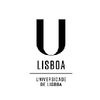Partners3

BIP-ZIP
The BIP-ZIP Program – Lisbon’s Neighborhoods and Priority Intervention Zones was created in 2011 by the Lisbon municipality as an instrument of municipal public policy, which aims to boost partnerships and small local interventions to improve the habitats covered, by supporting projects carried out carried out by parish councils, local associations, collectivities and non-governmental organizations, contributing to the strengthening of socio-territorial cohesion in the municipality.


The AL Belo Correia Seed Bank, of the National Museum of Natural History and Science, is a conservation and research infrastructure whose main objective is the long-term conservation of Portuguese flora seeds. The conservation of endangered species is a priority and makes it possible to implement the Global Strategy for Plant Conservation in Portugal. The collection thus constitutes insurance against the extinction of plants in their natural habitat, providing seeds for the rehabilitation of habitats and the reintroduction of species or reinforcement of their populations. It is also a source of material of controlled origin and quality for scientific research. It is the only national member of ENSCONET-The European Native Seed Conservation Network, a European consortium that brings together 30 seed banks of native species.

RESEED PROJECT
The project that takes place at the University of Coimbra, led by historian Dulce Freire, is funded by the European Research Council. ReSEED aims to analyze the transformations in agriculture historically associated with cultivated seeds, the environment and human action since the 18th century. The study will contribute to understanding the socio-economic and ecological impacts of the spread in Europe of food products from the new worlds. The research focuses on the Iberian Peninsula, which was the gateway for many of these seeds to the old continent. The main objectives are to build a historical geography of local seeds grown in Portugal and Spain; mapping the social and institutional networks that allowed the circulation of old and new seeds; and identify innovations related to changes in regional agriculture.

LIVING SEEDS SEEDS VIVAS SA

VALORSUL
Valorsul - Valorização e Treatment de Resíduos Sólidos das Região de Lisboa e do Oeste, SA is the company responsible for the treatment and recovery of the approximately 950 thousand tons of urban waste produced, per year, in 19 Municipalities of Greater Lisbon and the Western Region. . Its area of intervention corresponds to less than 4% of the total area of the country, but it values more than a fifth of all domestic waste produced in Portugal. This immense amount of waste is treated and valued by Valorsul through a modern System of Integrated Management of Urban Waste (RU) suited to the growth and composition of our urban waste. What was thrown away at Valorsul is once again a resource, a raw material capable of being transformed into a new cardboard box, a new glass bottle, electricity, fertilizer for agriculture or materials for construction. of a new road.

The Carmo Wood Group develops products and services in the forestry sector, focusing on the value delivered to customers, the sustainability of its practices and the promotion of respect for the person, dignity and adequate working conditions.
